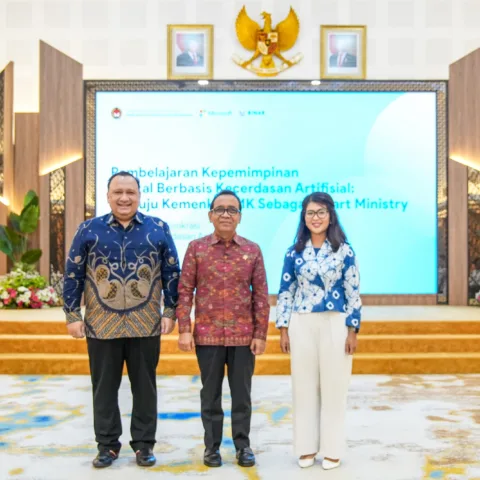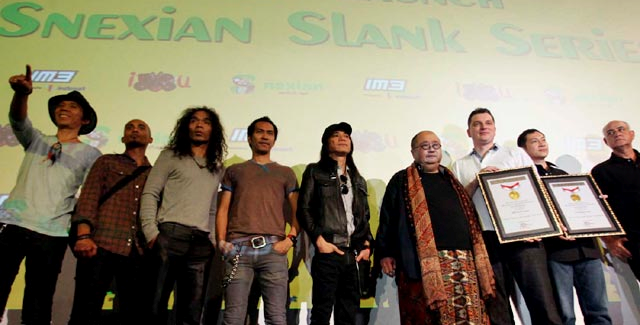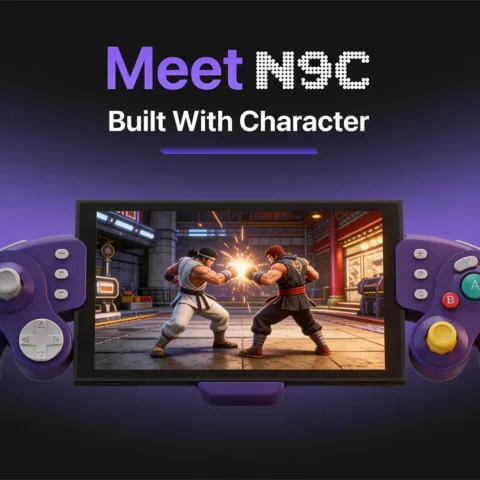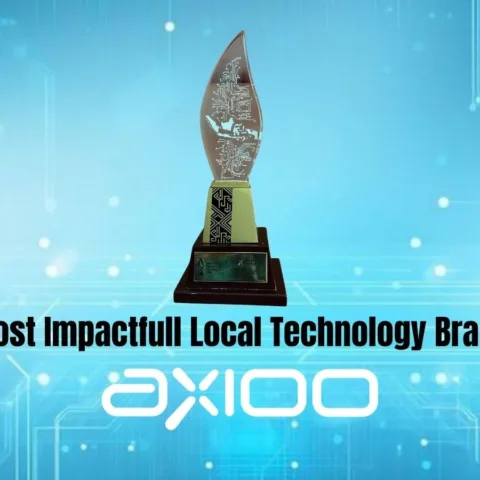 A few days ago we highlighted an issue with the Windows Phone Marketplace. A Slovenian developer, Matic Bitenc blogged about his difficulties in publishing his app called Toshl on Windows Phone Marketplace. Bitenc pointed at the lack of access for Slovenian developers even though Marketplace is already available to customers in the former Yugoslavian republic. As a result, Bitenc had to submit his app using a Microsoft Slovenia account.
A few days ago we highlighted an issue with the Windows Phone Marketplace. A Slovenian developer, Matic Bitenc blogged about his difficulties in publishing his app called Toshl on Windows Phone Marketplace. Bitenc pointed at the lack of access for Slovenian developers even though Marketplace is already available to customers in the former Yugoslavian republic. As a result, Bitenc had to submit his app using a Microsoft Slovenia account.
We dug in to find out whether this is happening as well in Indonesia. The country already has its own Marketplace which debuted alongside the Nokia Lumia. We contacted Puja Pramudya, co-founder and developer at Bandung-based Radya Labs which specializes in Windows Phone platform. Radya Labs is arguably the most prolific Windows Phone app developer in the country, publishing apps for itself as well as for clients.
We asked Pramudya about the status of Windows Phone publishing in Indonesia and this is what he has to say about it.
No Developer Account For Indonesian Developers Yet
Since Windows Phone was launched in October 2010 Indoneian developers have yet to be able to publish using their own accounts. Microsoft gradually opens registration for developers around the world but for the last two years Indonesian developers have yet to receive that privilege. We don’t know for sure the reason behind the decision but we think it may have to do with the gradual roll out based on the country’s track record whether it has a large base of Microsoft developers. We also thought about legal issues (as well as taxation and other administrative matters) that have yet to be solved for Microsoft to offer developer accounts in Indonesia.
Without a developer account, developers can’t publish their apps and can’t unlock their devices. Windows Phone devices that have yet to be unlocked using a developer account cannot be used for testing purposes. Developers won’t be able to sideload apps to unlocked phones. An emulator does provide a way to test out functionalities but to us, an emulator only serves only to check them and does not allow to check for performance issues. According to our own experiences, device testing is still required especially when we need functions that are not available on the emulator such as sending an email, actions that require sensors, camera, and other requirements.
 Microsoft Indonesia has tried to provide a way to deal with this issue. Indonesian developers who really want to publish their apps can contact the company and have their apps published under Microsoft’s account through a third party service called App Gateway. The fees will be handled by Microsoft. Those who are even more serious in publishing on the Marketplace can open their own account on App gateway or use other services such as Yalla Apps. The advantage of owning your own account is the ability to have statistics to your apps.
Microsoft Indonesia has tried to provide a way to deal with this issue. Indonesian developers who really want to publish their apps can contact the company and have their apps published under Microsoft’s account through a third party service called App Gateway. The fees will be handled by Microsoft. Those who are even more serious in publishing on the Marketplace can open their own account on App gateway or use other services such as Yalla Apps. The advantage of owning your own account is the ability to have statistics to your apps.
Even so, the biggest drawback in using a third party service is visibility and this is a significant issue for us and other professional app developers in Indonesia. The apps that we submit will be displayed under a third party name which means developers will be directed to that third party account, not the developer’s account. Credit to the developer can be placed in the description on the app’s page or within the app itself but this is not a “sexy” solution.
What we do is we have a partner in a country where developer accounts are available and open the account from that country. That way we can still operate our business, receive payment (how much we receive is another matter entirely) and have direct access to various data including download numbers, crash reports and new information about the ecosystem.
Having a developer account is very important and right now Indonesian developers are being deprived from it if they provide an Indonesian address and bank account. The available options are wait, or take an alternative route (and Indonesians are pretty good at that) by opening an account from another country. We started in 2011 and waiting was not an option. The good news is that once Windows Phone 8 arrives, Indonesia is included in the list so local developers should be able to open their own accounts.
Transferring Apps Between Accounts
With Indonesian accounts becoming available, we have thought about transferring our existing apps. Even though we’ve never done that before, according to the information we receive, it’s not actually possible. This involves removing the old app from the previous account and reuploading it using a different account. We’ve long heard about this problem and it’s similar to switching between Windows Live accounts when logging into a Windows Phone. The Live ID that’s been associated with a Marketplace from one country cannot be transferred to another region. The only way to do it is to create a new account.
In our case, this won’t pose too much of an issue. Every one of our apps already has download statistics. While it’s not significant, the practicality in using an Indonesian account will in the long run provide more advantages over using an account from another country.
Problem will arise for those whose apps have been downloaded in great numbers (over a hundred thousand) and with god reviews and ratings. However, at the moment there’s only a small number of local developers with their own accounts and therefore very few faces this issue. Most local developers would rather wait.
We don’t fully understand the difficulties in this procedure. Perhaps it’s related to the technical and internal bureaucracy in the App Hub itself, but seeing that other platforms have the same issue, this might be an industry best practice.
Marketplace Certification
Certification process takes between 3-7 working days. To us this is not a barrier and it should be considered during the planning stage. Don’t be too optimistic and submit near the deadline, pay attention to the timing. What we do is we give a three week buffer prior to the launch date so we’ll be able to catch any issue that might stop the app from being published. Aside from that, make sure to comply with all the requirements. Microsoft provides documentation on everything that needs to be dealt with including check points.
This documentation is a guide for our internal testers before submitting apps to the Marketplace to avoid failed certifications. other than that, on Visual Studio’s IDE there’s the Marketplace Test Kit that’s very helpful for local testing since it resembles the real test. With good planning and trackable development process, certification shouldn’t be a difficult process.
From our 15 apps on the Marketplace, only two have had issues. One had a language problem and the second was content. For certain countries, certain sensitive subjects are off limits but these are well documented and should be anticipated early.
We’ve had a tight deadline before. While 3-7 days is a set length, your project’s approval can be accelerated if you work with certain parties such as Nokia Indonesia.
Publishing Tools on App Hub
Publishing tools on App Hub relies on Silverlight. Because all of our development machines are Windows based, we’ve had no browser compatibility issues. The problem in fact lies in Internet connection in Indonesia which we have had to tolerate together. Silverlight as a plug-in system requires a much longer loading time and there’s nothing we can do about it other than having to find a better connection.
Promotion
Making an app is one thing, promoting it is another. So far we haven’t come across Microsoft’s promotional program for local developers in the Marketplace. What we know is there is someone in charge to deal with Marketplace in Indonesian. We’ve never contacted Microsoft for this information.
With Nokia and Microsoft’s collaboration in which Nokia’s presence is far greater, support for local app promotion comes primarily from Nokia. Several times our apps were highlighted on Nokia’s website and were featured on the Marketplace. Whether this is their strategy I can’t say for sure. One of the largest support from Nokia is the chance to have your apps preloaded on upcoming Nokia devices. While its not Marketplace related, being preloaded is a huge deal for local developers.











